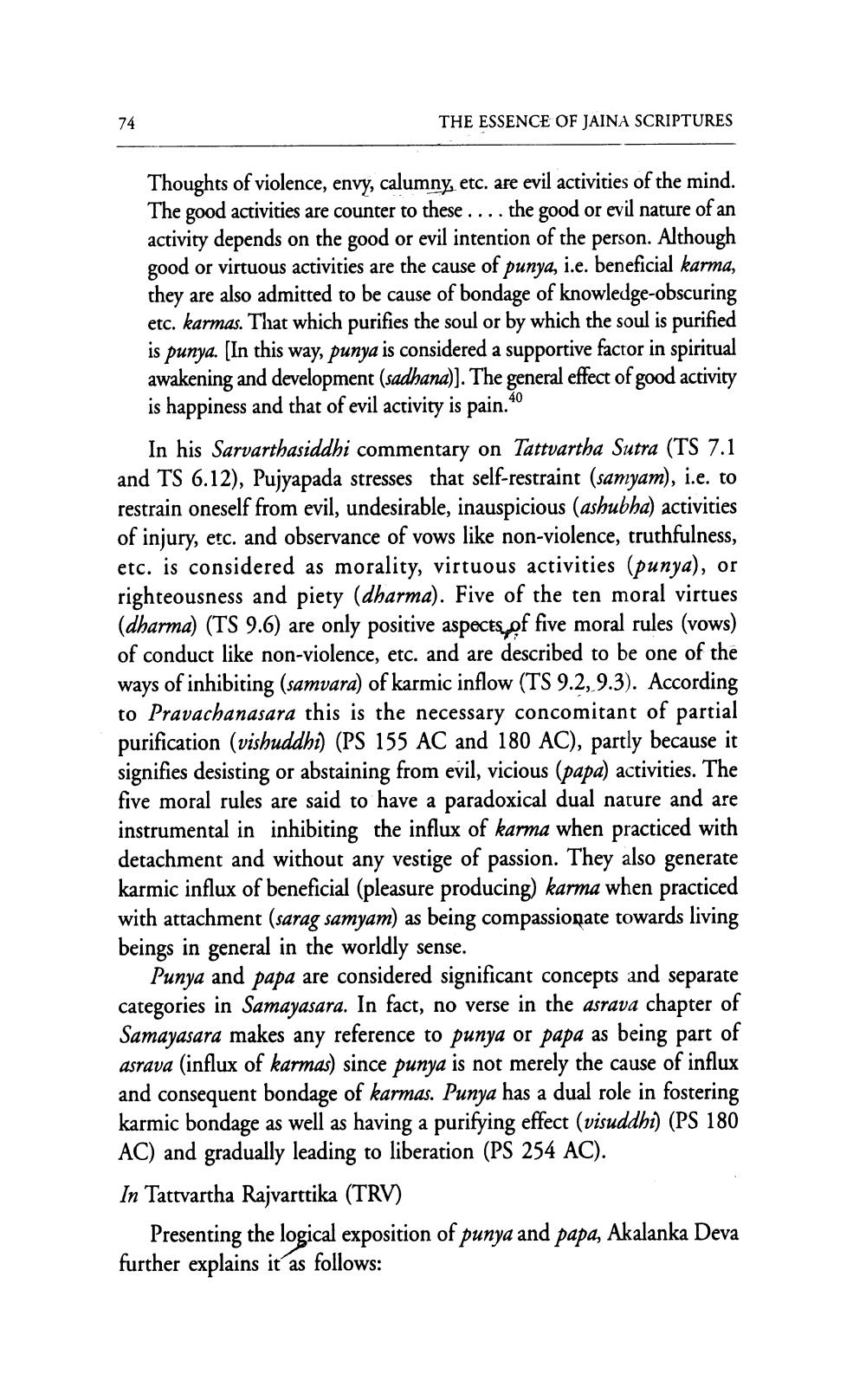________________
74
THE ESSENCE OF JAINA SCRIPTURES
Thoughts of violence, envy, calumny, etc. are evil activities of the mind. The good activities are counter to these.... the good or evil nature of an activity depends on the good or evil intention of the person. Although good or virtuous activities are the cause of punya, i.e. beneficial karma, they are also admitted to be cause of bondage of knowledge-obscuring etc. karmas. That which purifies the soul or by which the soul is purified is punya. [In this way, punya is considered a supportive factor in spiritual awakening and development (sadhana)]. The general effect of good activity is happiness and that of evil activity is pain.40
In his Sarvarthasiddhi commentary on Tattvartha Sutra (TS 7.1 and TS 6.12), Pujyapada stresses that self-restraint (samyam), i.e. to restrain oneself from evil, undesirable, inauspicious (ashubha) activities of injury, etc. and observance of vows like non-violence, truthfulness, etc. is considered as morality, virtuous activities (punya), or righteousness and piety (dharma). Five of the ten moral virtues (dharma) (TS 9.6) are only positive aspects of five moral rules (vows) of conduct like non-violence, etc. and are described to be one of the ways of inhibiting (samvara) of karmic inflow (TS 9.2, 9.3). According to Pravachanasara this is the necessary concomitant of partial purification (vishuddhi) (PS 155 AC and 180 AC), partly because it signifies desisting or abstaining from evil, vicious (papa) activities. The five moral rules are said to have a paradoxical dual nature and are instrumental in inhibiting the influx of karma when practiced with detachment and without any vestige of passion. They also generate karmic influx of beneficial (pleasure producing) karma when practiced with attachment (sarag samyam) as being compassionate towards living beings in general in the worldly sense.
Punya and papa are considered significant concepts and separate categories in Samayasara. In fact, no verse in the asrava chapter of Samayasara makes any reference to punya or papa as being part of asrava (influx of karmas) since punya is not merely the cause of influx and consequent bondage of karmas. Punya has a dual role in fostering karmic bondage as well as having a purifying effect (visuddhi) (PS 180 AC) and gradually leading to liberation (PS 254 AC).
In Tattvartha Rajvarttika (TRV)
Presenting the logical exposition of punyaa and papa, further explains it as follows:
Akalanka Deva




